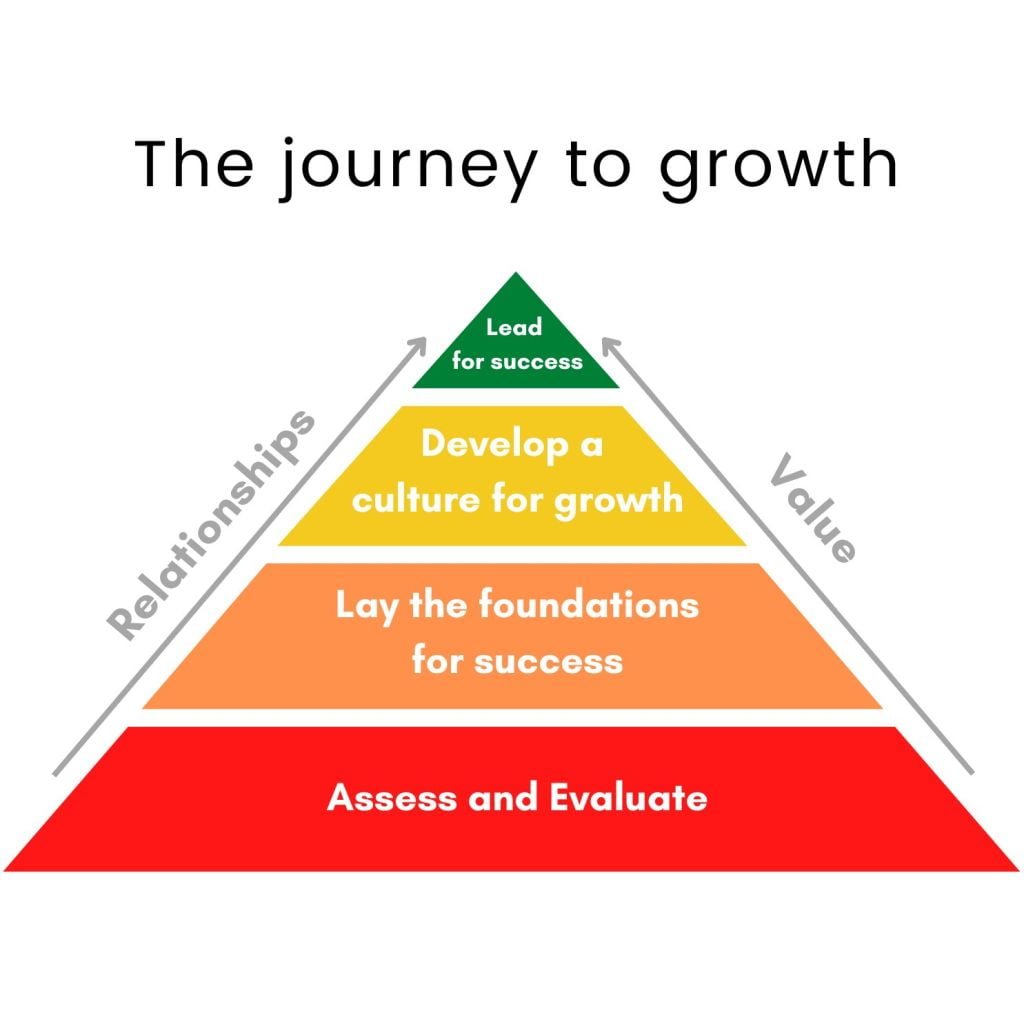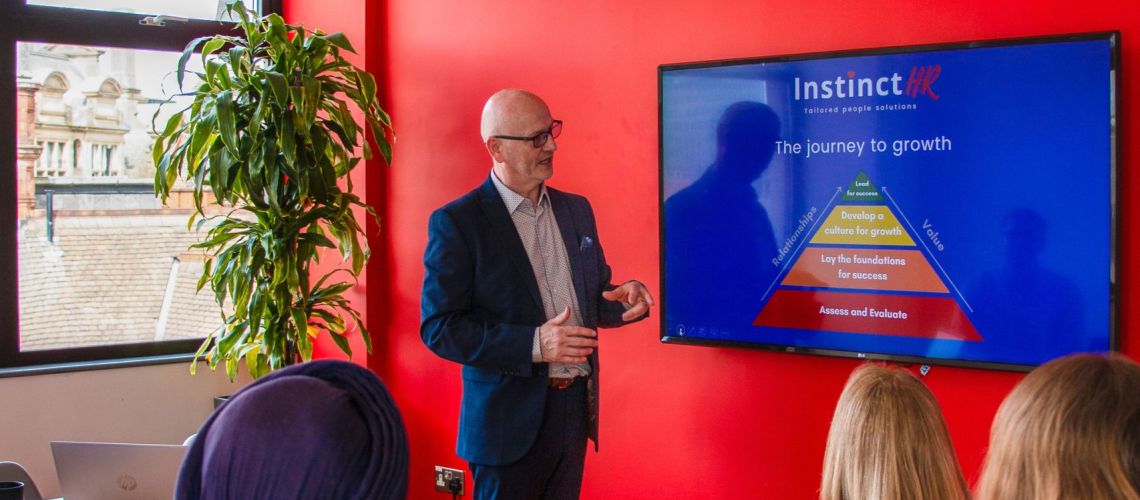Developing a people strategy that delivers your business goals and ambitions is a critical function for any decent independent HR professional.
A key element of this is to create a culture for growth, one that is driven by your company’s mission, purpose, and values.
This will ensure business owners and managers are leading for delivery and success and are de-cluttered to do the job only they can do.
Part 1: Your business strategy
The essential starting position to developing your people strategy is to ensure a deep understanding of your company’s goals and ambitions for the short, medium, and long term:
- Is there a clear purpose and direction?
- Are the goals and ambitions clearly defined?
- What are the company values?
- What is the desired culture?
- Is there and attractive employee value proposition?
And of course, developing the right leadership behaviours is essential – some never want to look at themselves, they just want the success!
One size doesn’t fit all though as every business is unique, so this proven model for success is tailored and adapted to meet individual business needs.
Part 2: The journey to growth
The Instinct HR growth pyramid illustrates the journey that we take clients on over a period of time to help them develop a culture for growth that enables them to lead for success and delivery.
The key principle being that greater value is added as deep trusting relationships are developed over time, it’s only then that we can only lead for delivery and success.
The early months are spent in the lower layers, where we literally create the foundations for the future, putting all the right stuff in place that will support the business long into the future.
The temptation, and sometimes challenge back, is often for business owners to want to race to the end and get quick results. There are no shortcuts to long term business success!
Download our Creating a Culture for Growth model for free to help you plan, develop, and implement your people strategy.

Part 3: Exploring the layers
Let’s explore the key HR activities within the 4 key layers of the growth pyramid:
Assess and evaluate
- Conduct a full HR Healthcheck
- Assess company culture, values, and ethos
- Review roles and accountabilities
- Assess employee engagement and satisfaction levels
- Clarify the business vision, strategy, and goals
- Assess leadership effectiveness
Laying the foundations for success
- Develop the employee value proposition
- Produce benefits matrix
- Develop or improve HR documents, policies and processes
- Ensure contracts of employment and handbook are robust, legal, and fair
- Implement your HR department – tailored and branded contracts, handbook and policies
Developing a culture for growth
- Align HR practices to the company vision and business strategy
- Gain buy-in to company vision, values and culture
- Introduce regular 1:1s, performance management, development plans and coaching
- Implement HR software & system
Leading for delivery and success
- Develop recruitment and retention strategy
- Hold regular check-in and support sessions
- Develop a learning culture; training, support, coaching
- Embed people processes and ensure compliance
- Review performance outcomes
- Reward high performance
Part 4: If You Need Help
Instinct HR specialise in helping small business owners to become great employers. We work shoulder to shoulder with business leaders and managers to ensure they are receiving the right level of advice, support, and guidance on their growth journey.
If you’d like to discuss your needs further or even understand how it can benefit you and your business, then please get in touch.


